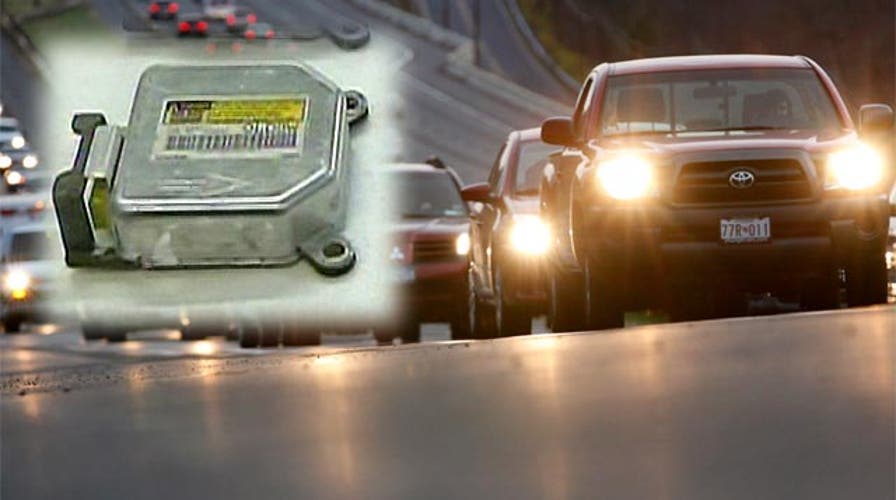A proposed federal rule that would require black boxes or event data recorders (EDRs) in every U.S. automobile may mean “Big Brother” could be in your passenger seat for every drive.
The National Highway Traffic Safety Administration rule requires all light passenger vehicles be equipped with an EDR by Sep.1, 2014. Ninety-six percent of new cars already have them -- measuring such inputs as speed, lateral acceleration, pedal effort, seat belt use, wheel spin, steering wheel turn and direction.
They only record information in the brief period before and after a crash. But black box data retrieved from U.S. car accidents in a single day would provide more information than a year's worth of crash testing, says Tom Kowalick, who heads the design team that is standardizing the devices for automakers worldwide.
But he also said he fears that for all their potential good, the EDRs present a massive privacy dilemma, and an opportunity for fraudsters.
Daily politics news delivered to your inbox: sign up for our newsletter
"They can take that odometer and roll that odometer back to zero,” he said. “They can change the Vehicle Identification Number (VIN), which is in the computer. And once they do that, then it's okay for them to very simply steal the motor vehicle and move it away."
Kowalick points out that YouTube has hundreds of clips that demonstrate how to hack into automobile EDRs. "Look at the number of people who are making tools, electronic tools, to do these things. You'll find hundreds of thousands of people who are already clicking onto these sites. And they must be doing that for some purpose," he said.
The potential for malfeasance is huge, but so is the access EDRs give to law enforcement and insurance companies, who could download EDR data to determine whether a motorist is at fault in an accident.
But that, too. presents ethical dilemmas, should an insurer examine a customer’s pattern of speeding to withdraw coverage or increase premiums, or worse, manipulate speed data to evade an accident pay-out.
Overlaid with GPS data, or with new D.U.I. interlock technology now under consideration for all automobiles, some say the black box could become a Pandora's box of Fourth Amendment violations against unlawful search and seizure.
Jeramie Scott of the Electronic Privacy Information Center said, "We just want data to be owned by the vehicle owners so it's required that their consent is given when the data is retrieved, whether it's by insurance companies or law enforcement or others."
The comment period for the NHTSA proposed EDR rule ended last February. The final rule has not yet been published.





